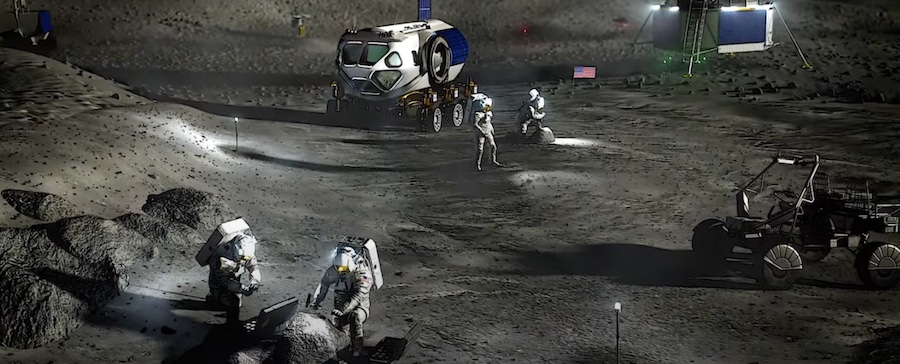NASA named 15 teams moving on to compete in the semifinal level of its Break the Ice Lunar Challenge on December 14, 2022. The $3.5 million multi-phase challenge invites problem-solvers from businesses, academia, maker communities, and more to play a role in building a lasting human presence and vibrant economy on the Moon by tapping into resources that are already there.
The second phase of competition kicked off in June with the goal of furthering development of lunar excavation and transport technologies. Level 1 challenged solvers to design a robotic system for digging and moving large quantities of icy Moon “dirt,” or regolith, found in the coldest, darkest places on the lunar surface.
Phase 2, Level 1
Twenty-five teams from around the world submitted entries for the first, qualifying level of Phase 2 competition. A panel of government, industry, and academic experts in in-situ resource utilization, or ISRU – the technical term for using local resources – evaluated teams’ entries and selected the winners based on submissions of detailed technical reports, engineering designs, and test plans.
Michigan Tech’s Planetary Surface Technology Development Lab (PSTDL) was selected among the winning teams. The founder and director of PSTDL is Paul van Susante, assistant professor in mechanical engineering-engineering mechanics and faculty advisor for Multiplanetary INnovation Enterprise (MINE).

